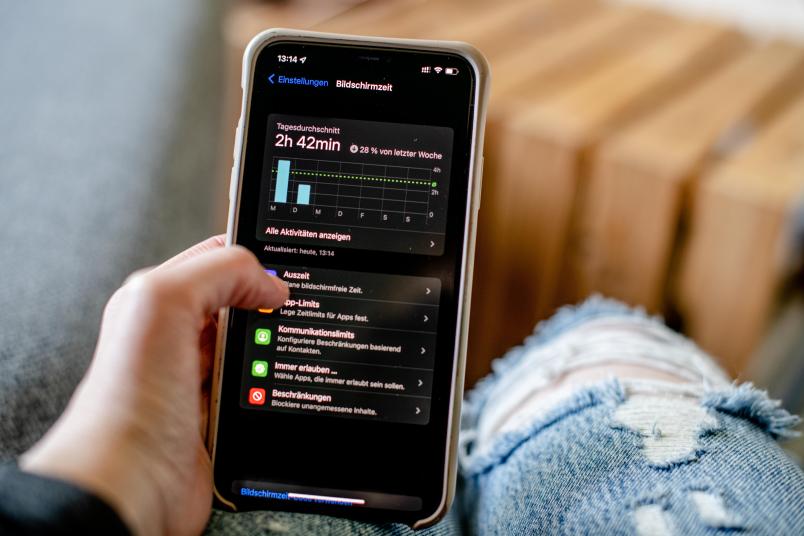
Psychology
Reducing Smartphone Use Increases Work Satisfaction
People who reduce their screen time on by merely one hour a day improve both their well-being and their motivation at work.
On average, we spend three and a quarter hours a day looking at our phones. Cutting back this time by one hour a day is not only good for our mental health, but also helps us to feel happier and more motivated at work. This was shown in a study of 278 participants conducted by a research group headed by PD Dr. Julia Brailovskaia from the German Center for Mental Health and the Mental Health Research and Treatment Center at Ruhr University Bochum, Germany. The researchers published their findings in the journal Acta Psychologica on September 14, 2024.
The findings of the study are of particular interest to employers, who sometimes invest a lot of money to improve the work satisfaction and motivation of their employees. “These factors are crucial for a company’s productivity,“ explains Julia Brailovskaia. With the current study results, the researchers have identified a simple and low-threshold solution to achieve these goals and to improve the mental health and work-life balance of employees at the same time.
A comparison of four groups
For their study, the researchers assigned the participants, who all came from different professional sectors, to four groups of roughly equal size. The smartphone group reduced their private smartphone use by one hour a day for one week. The sport group increased their daily physical activity by 30 minutes. The combination group did both, and the control group didn’t change their routine at all.
All participants completed online questionnaires before these interventions, immediately afterwards and two weeks after the intervention period ended, providing information about their well-being, both with regard to work and mental health.
Depressive symptoms decreased
In the smartphone group and the combination group, the researchers found that work satisfaction and motivation, work-life balance and mental health had improved significantly. What’s more, the feeling of work overload and symptoms of problematic smartphone use were significantly reduced. All interventions led to a reduction in depressive symptoms and they increased the participants’ sense of control.
“A conscious and controlled reduction of non-work-related screen time, in combination with more physical activity, could improve employees’ work satisfaction and mental health,” concludes Julia Brailovskaia. The researcher believes that these interventions could either complement established training programs or serve as a stand-alone, time- and cost-efficient, low-threshold program.